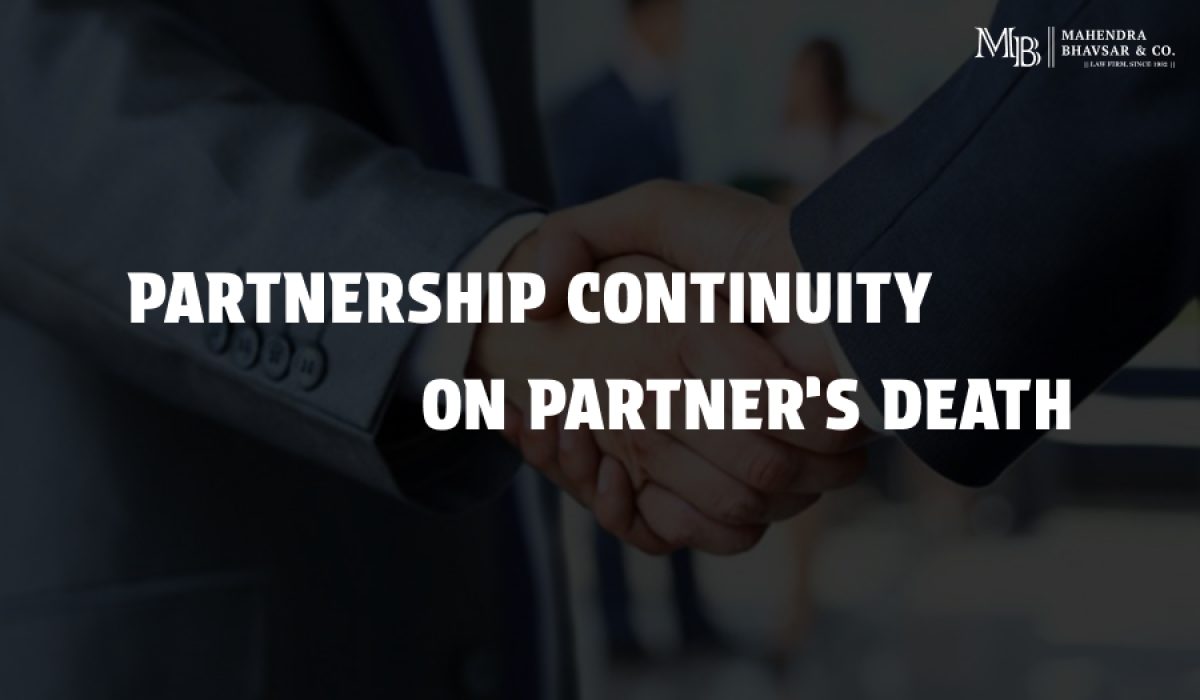1. Factual Background and Procedural History
The dispute arose out of a kerosene dealership operated by M/s Shree Niwas Ramgopal, originally a proprietorship firm owned by late Kanhaiyalal Sonthalia. On 24 November 1989, the business was reconstituted as a partnership comprising Kanhaiyalal (55%), his son Ramesh (35%) and another son Gobinda (10%). The partnership entered into a dealership agreement with Indian Oil Corporation Limited (IOCL) on 11 May 1990.
Kanhaiyalal passed away on 29 November 2009, leaving behind his widow, seven sons, and four daughters. Disputes emerged amongst the heirs regarding the 55% share of the deceased partner. Despite the deed permitting continuity of the firm, IOCL insisted that all legal heirs of the deceased must be inducted as partners before recognising reconstitution and continuing the supply of kerosene.
The surviving partners reconstituted the firm on 13 April 2010 by inducting one competent heir, Bijoy Sonthalia, in accordance with the partnership deed. IOCL refused recognition and threatened discontinuation of supply beyond 14 June 2010.
The firm approached the Calcutta High Court under Article 226. The Single Judge (03 July 2012) directed IOCL to continue the dealership until the partnership was reconstituted or terminated. The Division Bench (04 July 2018) upheld the mandamus. IOCL filed a Special Leave Petition before the Supreme Court, resulting in the present judgment dated 14 July 2025, dismissing the SLP.
2. Identification of Legal Issues
The Supreme Court considered the following core legal issues:
- Whether a partnership with more than two partners automatically dissolves upon the death of one partner under Section 42 of the Partnership Act, 1932, despite a continuity clause in the deed.
- Whether IOCL could lawfully insist that all legal heirs of the deceased partner must either join the reconstituted firm or expressly refuse before it recognises reconstitution.
- Whether a statutory corporation can demand conditions not contemplated in the partnership deed or the dealership agreement.
3. Arguments of the Parties
IOCL (Petitioners)
- Relied on clause 1.5 of the revised policy guidelines dated 01.12.2008, asserting that reconstitution must include all legal heirs.
- Contended that without induction of every heir or express unwillingness from each, IOCL could decline continuation of dealership.
- Argued uniform enforcement of internal guidelines across the country justified refusal.
Respondent Firm and Surviving Partners
- Relied on Clause 18 of the Partnership Deed permitting continuity of business and admission of any competent heir.
- Submitted that the dealership agreement did not mandate dissolution, and IOCL had not exercised termination.
- Asserted IOCL had no authority to adjudicate heirship competence.
- Emphasised that insistence on all heirs joining was arbitrary and contrary to the deed and statute.
4. Court’s Analysis and Reasoning
The Court held that Section 42 of the Partnership Act applies differently depending on the firm’s composition. Dissolution upon death is the default rule, but if the deed provides otherwise and more than two partners exist, the firm does not dissolve.
The Court:
- Referred to M/s Wazid Ali Abid Ali v. CIT (1988 Supp SCC 193), holding that death leads to change in constitution, not dissolution, if continuity is contemplated.
- Affirmed Sandersons & Morgans v. ITO and Noor Mohammad & Co. v. CIT, confirming that heir induction is a matter for partners’ discretion.
- Clarified that IOCL misconstrued its own guidelines: the phrase “legal heirs of the deceased partner” does not mandate unanimous joinder.
The Court observed that:
IOCL, being a state instrumentality, ought to act fairly and beneficially to ensure commercial continuity rather than adopting an unnecessarily hyper-technical approach.
Further, the corporation cannot determine “competent heir”; this role lies solely with the surviving partners under the deed. IOCL’s insistence on all heirs amounted to rewriting the contractual arrangement, which is impermissible.
5. Final Conclusion and Holding
The Supreme Court dismissed the SLP, affirming the High Court’s mandamus. It held:
- A partnership with more than two partners does not dissolve upon the death of one partner if the deed contains a continuity clause.
- IOCL cannot insist on the joining of all legal heirs as a condition for reconstitution.
- The corporation must act to ensure continuity of business, not create artificial hurdles.
The decision reinforces contractual autonomy under partnership law and restricts arbitrary interference by statutory bodies.
FAQs:
1. Does a partnership automatically end when a partner dies?
No. If the partnership deed expressly provides for continuity and the firm has more than two partners, the firm continues despite the death of a partner.
2. Must all legal heirs of a deceased partner be inducted into a reconstituted partnership?
Not necessarily. The law permits surviving partners to induct any one or more competent heirs, as per the deed’s terms.
3. Can a government corporation refuse to recognise a reconstituted partnership?
Only if termination rights under the contract have been exercised. It cannot impose conditions not contemplated by the deed or the dealership agreement.
4. Who decides which heir is competent to join the partnership?
The surviving partners decide, as per the partnership deed. A corporation or third party has no jurisdiction over such internal matters.
5. What is the legal distinction between dissolution and reconstitution of a firm?
Dissolution ends the firm altogether, whereas reconstitution changes the composition of partners while the firm continues its legal and commercial identity.
Stay informed with insights that matter. Follow us for more updates on key legal developments.
Disclaimer
The content provided here is for general information only; it does not constitute legal advice. Reading them does not create a lawyer-client relationship, and Mahendra Bhavsar & Co. disclaims all liability for actions taken or omitted based on this content. Always obtain advice from qualified counsel for your specific circumstances. © Mahendra Bhavsar & Co.
